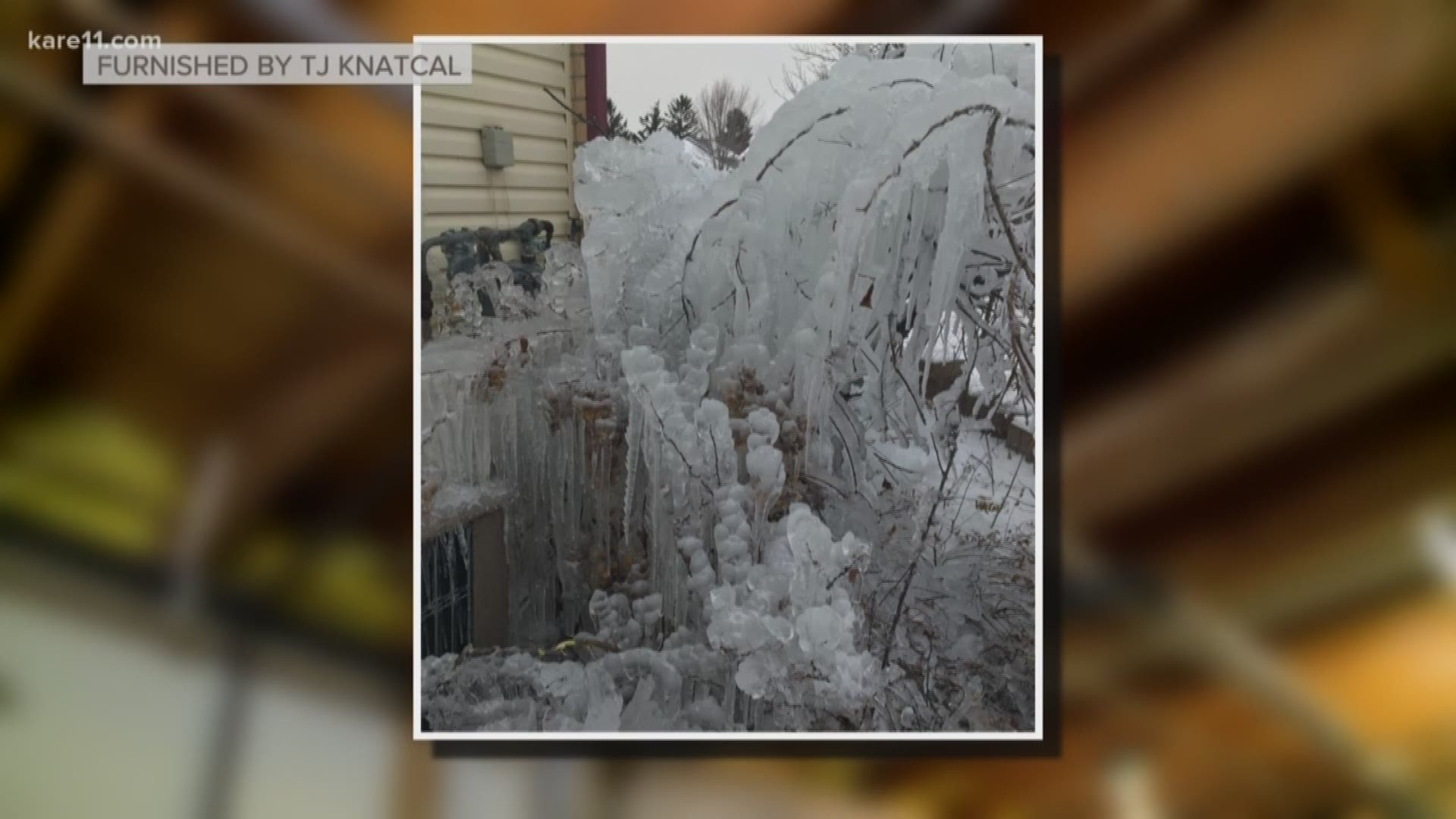MAPLE GROVE, Minn. — When the cold air hits, all anyone can think about is getting warm and staying inside.
The entire world around us seems to slow down, with everyone moving slower, driving slower and sleeping longer to preserve energy.
But plumbers are moving faster than ever.
“We’ve had a lot of calls so far,” TJ Knatcal says. “Just today we had 29 calls for frozen pipes.”
And the week is far from over.
“It’s going to be a busy week for us, that’s for sure,” Knatcal says.
As cold as it is right now, it’s going to get a whole lot worse later this week.
To avoid paying a costly plumbing bill, here are a few things you can do to prevent frozen pipes.
“Make sure your lines stay warm,” Knatcal says.
"It's common for the kitchen line to freeze because a majority of the time it's on the outside wall."
The best thing to do in those cases is to open the doors under your sink so the warm air can get in.
“It’s also not a bad idea to occasionally turn the faucet on and off,” Knatcal says.
Not just a trickle, but actual streams of water that you should run for a few seconds every hour or so if it’s an area you’re worried about.
Contrary to popular belief, Knatcal says running a light trickle of water can actually cause more problems.
If your pipes are clogged with hair, food or other debris, the light trickle of water will cling to those items and can freeze your lines faster.
Also, the lighter the trickle, the faster it will freeze.
“If you’re home and awake you can run a light trickle and keep an eye on it, but if you’re going away for a few days I wouldn’t recommend it, because the water can build up in the pipes and flow over your sink and cause flooding.”
Another area of concern is your outside water lines. These lines run water to your outside faucets and hoses during the summer, but during the winter those lines should be closed and well-insulated, Knatcal says.
“If you don’t close them the water will sit in the pipe and hit the outside air and it can freeze,” Knatcal explains.
“Once it's frozen the ice will expand, and it can crack your pipes.”
And once the water starts spraying out it’s important to know how to shut it off.
Knatcall says knowing where your main water shutoff is can easily save you thousands of dollars in repair bills.
During a recent emergency call, Knatcal says the owner didn’t know how to shut the water off and it kept running for several hours.
“When I walked in the ceiling had collapsed and the water was pouring out of a big hole,” Knatcal says. “It was pouring out like someone was running a hose full blast.”
Knatcal says a lot of water shutoffs are in cold spaces, such as closets, basements and outside-facing walls.
He recommends keeping those areas warm if you can.
If the shutoff is in a closet, open the doors. If it’s in the basement or near an outside-facing wall, you might want to run a heater.
“There are a lot of new heaters that have temperature controls and will shut off if they get too hot,” Knatcal says.
Some other helpful items include heating cables you can wrap around cold pipes, moisture alarms that go off when a pipe is leaking water, and smart thermostats that monitor the temps inside your home while you’re away.
If you’re planning a trip this week Knatcal also suggests keeping your heat on so your pipes don’t freeze.
He says it’s also a good idea to tell a neighbor, so they can check on things while you’re away.

